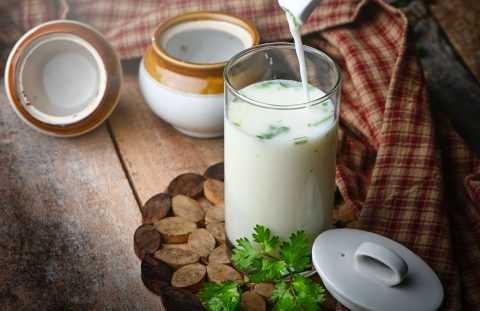As we grow older, it becomes increasingly crucial to prioritise and take care of our overall well-being and physical condition. With time, the significance of maintaining good health becomes even more evident, as it directly impacts our daily lives and quality of life. It is essential to engage in regular exercise for senior fitness, follow a balanced and nutritious diet, get sufficient rest and sleep, manage stress effectively, and seek regular medical check-ups to monitor our health status. By making conscious choices and incorporating healthy habits into our lifestyle, we can enhance our longevity and enjoy a fulfilling and vibrant life as we age.
One key aspect of staying healthy is adopting a balanced diet that supports brain health, senior fitness and physical fitness. A balanced diet can provide the necessary nutrients for older adults to maintain their energy levels, support muscle strength, and promote overall well-being. In this article, we will explore the importance of a balanced diet for seniors and provide nutrition tips to help older adults stay fit and active.
Why is a balanced diet important?
A balanced diet is crucial for seniors as it provides the necessary nutrients needed for optimal health. As we age, our bodies undergo various changes, including a decrease in muscle mass and changes in metabolism. A balanced diet can help address these changes and support senior fitness and exercise in the following ways:
- Energy levels: As we age, our bodies naturally become less efficient at producing energy. This can lead to fatigue, which can make it difficult to engage in physical activities and everyday tasks. A balanced diet that includes a variety of nutrient-dense foods can provide seniors with the energy they need to engage in physical activities. Complex carbohydrates, such as whole grains, fruits, and vegetables, are excellent sources of energy and should be included in a senior’s diet.
- Muscle strength: Muscle mass begins to decline as early as the age of 30. This decline accelerates with age, especially after the age of 65. Sarcopenia, or age-related muscle loss, is a major risk factor for falls, fractures, and disability. Maintaining muscle mass is important for seniors to stay strong and mobile, and strength training can help achieve this. Adequate protein intake is essential for maintaining muscle strength and preventing muscle loss in seniors. Including lean sources of protein, such as poultry, fish, beans, and tofu, can help seniors maintain their muscle mass and support physical activity.
- Bone health: Bone density decreases with age, increasing the risk of osteoporosis and fractures. Osteoporosis is a disease that causes bones to become weak and brittle. It is a major health problem for seniors, and it can lead to serious injuries and disability. Maintaining bone health is important for seniors to prevent fractures and stay active Consuming foods rich in calcium and vitamin D, such as dairy products, leafy greens, and fortified cereals, can help seniors maintain strong bones and reduce the risk of fractures during physical activities.
- Overall well-being: A balanced diet that includes a variety of fruits, vegetables, whole grains, lean proteins, and healthy fats can provide essential vitamins, minerals, and antioxidants. These nutrients help support the immune system, reduce inflammation, and promote overall well-being, allowing seniors to engage in exercise and physical activities comfortably.

Nutrition tips to support senior fitness and exercise
- Stay hydrated: Drinking an adequate amount of water is crucial for seniors to maintain proper hydration during physical activities. Aim to drink at least 8 cups of water per day, and increase fluid intake during hot weather or intense exercise.
- Choose nutrient-dense foods: Opt for foods that are rich in nutrients and low in empty calories. Include a variety of fruits, vegetables, whole grains, lean proteins, and healthy fats in your daily meals. These foods can provide the necessary vitamins and minerals to support your body’s functions and keep you energised.
- Watch portion sizes: As we age, our calorie needs may decrease. Be mindful of portion sizes to prevent overeating and maintain a healthy weight. Consider using smaller plates and bowls to help control portion sizes and prevent unintentional overconsumption.
- Prioritise fibre: Include fibre-rich foods, such as whole grains, fruits, vegetables, and legumes, in your diet. Fibre helps digestion, promotes satiety, and supports overall gut health. It can also help regulate blood sugar levels and reduce the risk of heart disease and constipation.
- Limit processed foods and added sugars: Processed foods and added sugars can contribute to inflammation and increase the risk of chronic diseases. Minimise the intake of sugary snacks, sodas, processed meats, and fast food. Instead, focus on unprocessed foods that provide essential nutrients without the added sugars and unhealthy additives.
- Consult a healthcare professional: If you have specific dietary concerns or health conditions, it is advisable to consult a healthcare professional or registered dietitian for personalised nutrition advice. They can help create a tailored meal plan that suits your individual needs and supports your fitness and exercise goals. They can also provide guidance on managing chronic conditions, such as diabetes or high blood pressure, through proper nutrition.
- Gradually increase the intensity and duration of your workouts: Don’t try to do too much too soon. Start with short, low-intensity workouts and gradually increase the intensity and duration as you get stronger and fitter

In conclusion, adopting a balanced diet is essential for supporting senior fitness and exercise. A well-rounded diet that includes a variety of nutrient-dense foods can provide the necessary energy, support muscle strength, and promote overall well-being. Following diets developed specifically for brain health, such as the MIND diet (Mediterranean-DASH Intervention for Neurodegenerative Delay Diet), can help delay memory loss and signs of brain ageing by at least 35%. Discover how well your brain is ageing and improve memory, focus, and attention. Take control of your cognitive age today!
Remember, it’s never too late to start prioritising your health through proper nutrition and regular exercise. Take small steps towards adopting a balanced diet, and you’ll be on your way to supporting your fitness and exercise goals as a senior citizen. If you found this article interesting, you might also like to read: Gut microbiome and its impact on senior health.




